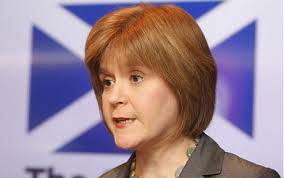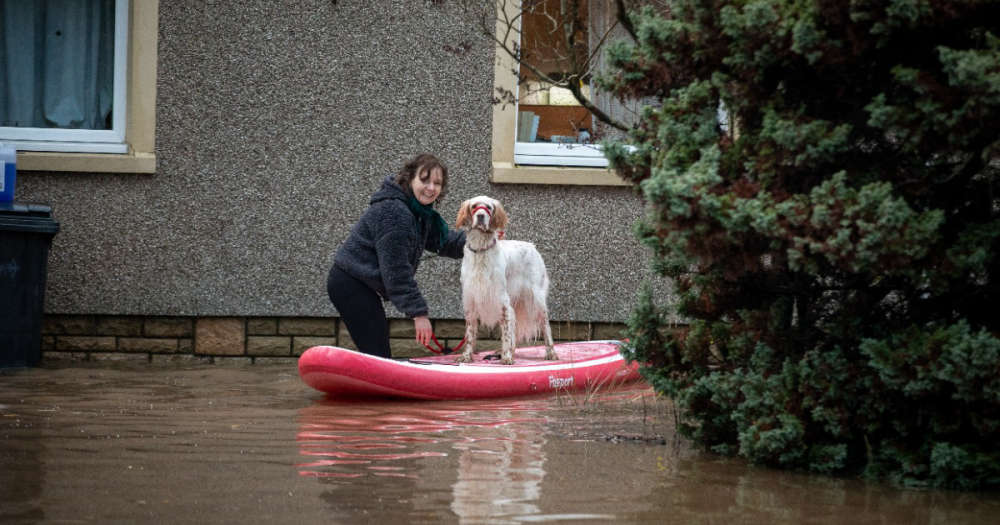
The First Minister has outlined her legislative priorities as MSPs return to Holyrood for the final session before the 2016 elections.
Education
Nicola Sturgeon has announced a new National Improvement Framework which is aimed at closing the attainment gap.
The framework will help track the progress of all children, introducing a national system of standardised assessment in P1, P4, P7 and S3 that will bring consistency to the assessment of literacy and numeracy and tracking of progress across Scotland.
Eight bills
A wide-ranging legislative programme will see eight new bills introduced, with measures included to strengthen the law on harassment and sexual offending; increase security for private tenants, protecting against excessive rents; and implement the recommendations made by the Infant Cremation Commission.
A reduction in air passenger duty will also come into force in April 2018, while employment tribunal fees are to be abolished.
The First Minister also announced additional support for Scotland’s kinship carers, with additional funding to local authorities to increase financial support for kinship carers to the same level as foster carers.
Health
Outlining her plans for Scotland’s public services, Ms Sturgeon announced plans to complete the integration of health and social care by April 2016 and test new models of primary care in ten sites across Scotland. She also announced that policing would be strengthened by a national review of police governance and a new requirement on the Chief Constable to submit to local public scrutiny sessions.
Kirkcaldy MND campaigner and patient Gordon Aikman recently appealed to the First Minister to introduce voice equipment for people affected by motor neurone disease, something Ms Sturgeon has agreed to back.
Scottish election
Ms Sturgeon proposed that the next Scottish election to follow the 2016 poll will be held in 2021, as she confirmed that the Scottish Elections (Dates) Bill would be brought forward in the forthcoming session.
And she confirmed that the Scottish Government would begin to implement the additional powers to be devolved following the Smith Commission process, with a planned cut in air passenger duty to be brought in from 2018, and a Scottish rate of income tax to be set for 2016/17 in the forthcoming budget.
The First Minister said:“Improving school attainment is arguably the single most important objective in this Programme for Government.
“Improving it overall and closing the gap between children in our most and least deprived areas is fundamental to our aim of making Scotland fairer and more prosperous. To address it, we need to be open to innovation and new practice - that's the purpose of our £100 million Attainment Fund.
“But we also need to have better information about attainment so that we measure progress consistently and drive change. We need to be able to see what’s working and where we still need to improve.
“So I can confirm that we will establish a new National Improvement Framework - a draft of it is being published today. We will introduce new national standardised assessments for pupils in primaries 1, 4, 7 and in the third year of secondary school.
“The new assessments will focus on literacy and numeracy. They will be piloted next year in schools participating in the Attainment Challenge and then introduced in all schools in 2017.
“The new national assessments - which we will develop in partnership with local government, teachers and parents - will replace the variety of different assessments already used by local authorities. So they will not increase teacher workload - indeed, as a government, we are mindful of the need to reduce bureaucracy so that teachers can focus on what they do best: helping children to learn.
“These new assessments will introduce greater consistency to Curriculum for Excellence. They will provide reliable evidence of a child's performance or progress - but they will not be the sole measurement. This is not about narrowing the curriculum or forcing teachers to "teach to a test". It is not a return to the national testing of old. And the assessments will inform teacher judgment - not replace it.
“They will provide robust and consistent evidence to help teachers judge whether or not a child is achieving the required level of Curriculum for Excellence”.
The First Minister concluded: “This ambitious and reforming Programme for Government speaks to our aspirations. It sets out how this Government will work - now and in the long term - to achieve our vision for Scotland’s future. And it demonstrates how enduring values - a belief in enterprise, a faith in the value of education, a commitment to fairness and solidarity, and a passion for democratic engagement – can be applied to make Scotland a fairer and more prosperous country.”

 Cupar Hearts win Scottish Amateur Cup Final
Cupar Hearts win Scottish Amateur Cup Final
 Financial support to be offered to flood-hit Cupar
Financial support to be offered to flood-hit Cupar
 Man, 64, in hospital after serious assault in Inverkeithing
Man, 64, in hospital after serious assault in Inverkeithing
 15°C
15°C
 17°C
17°C